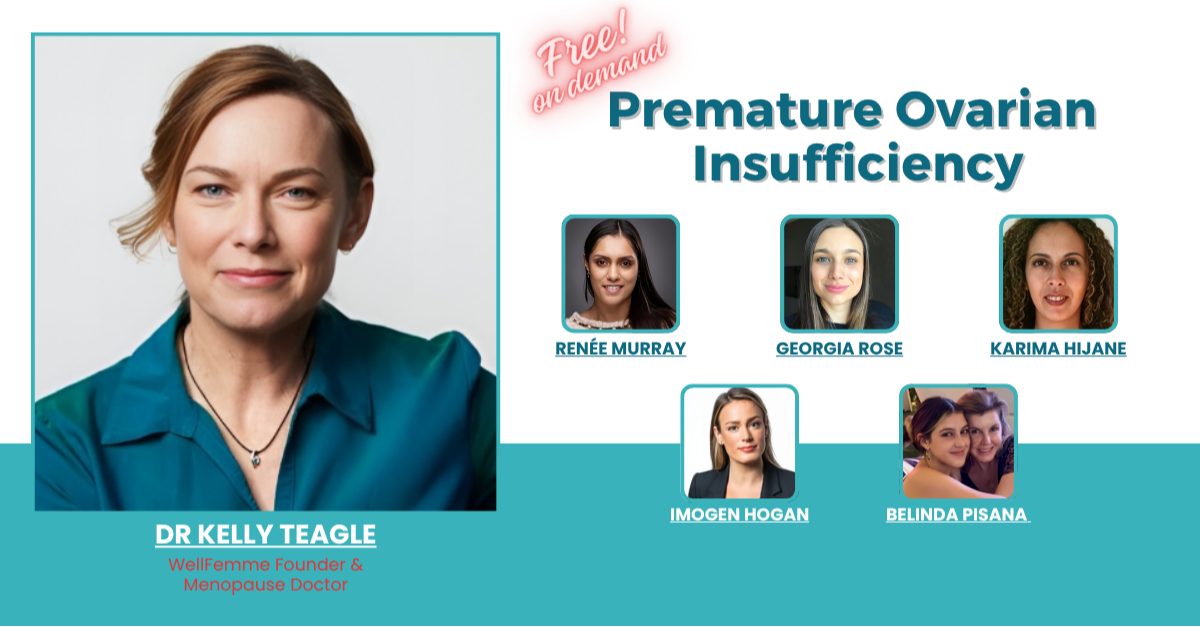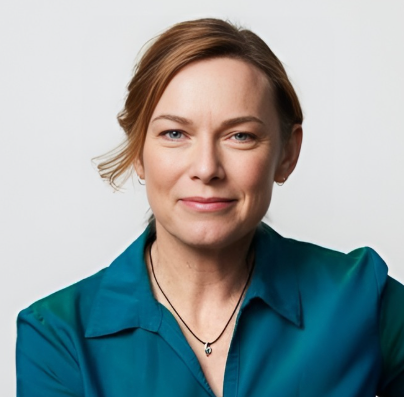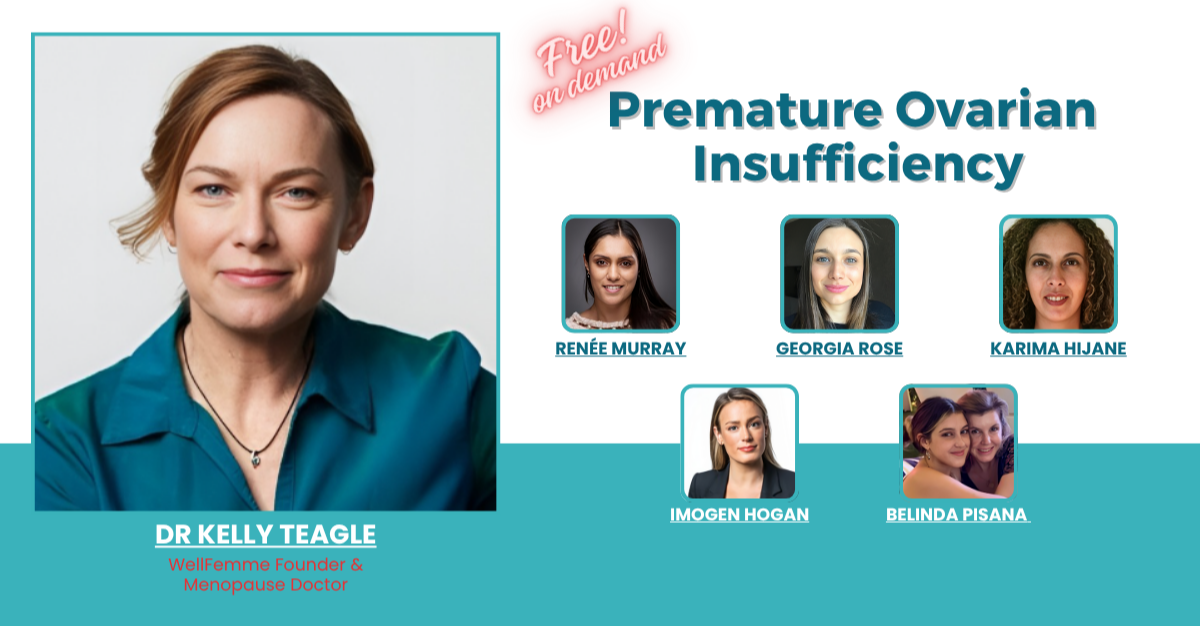
WellFemme Founder and menopause expert Dr Kelly Teagle hosts this powerful discussion about the health and emotional consequences of Premature Ovarian Insufficiency (POI). She is joined by a panel of women with their own lived experiences of POI to learn about their experiences, advocacy and research.
In this webinar you will learn:
- What is Premature (or Primary) Ovarian Insufficiency?
- How common is it, and who does it effect?
- What are the physical and psychological consequences of POI?
- How does it impact women who have the diagnosis, and their families?
- What treatments are available?
- Where can I get more information and support?
The webinar is around 75minutes.
DR KELLY TEAGLE
Dr Kelly Teagle is a GP in Canberra specialising in Women’s health. She experienced a particularly early and difficult menopause at the age of 42, prompting her to learn more about the treatment of menopause-related issues. In 2018 Dr Teagle founded WellFemme, a ground-breaking Telehealth Menopause Clinic that set the bar for quality Telehealth services long before COVID made them routine. WellFemme now has 15 doctors and thousands of clients around Australia, plus a great library of resources about the menopausal transition available through our website: www.wellfemme.com.au.


Renée Murray
Renée Murray was diagnosed with POI as a teenager shortly after the removal of a cancerous thyroid tumour. The lack of medical information, research and support post diagnosis has led Renée on a journey to help better support those who receive this devastating diagnosis. Renée shares her own experience and goals for the future.
Georgia Rose
Georgia Rose was diagnosed with premature ovarian insufficiency (POI) at the age of 15 — a life-altering moment that led to a long period of depression and years of grappling with grief and anxiety about fertility and identity. In this webinar, she shares her path from that early diagnosis to figuring out HRT and becoming a parent through reciprocal IVF using her wife’s egg and donor sperm. She now lives with her wife and baby son and works as a solicitor.


Karima Hijane
Karima Hijane was diagnosed with Primary Ovarian Insufficiency in March 2007 after years of symptoms and testing. Karima is based in the U.S., where she joined the NIH’s (National Institutes of Health) POI protocol shortly after diagnosis. She then began hormone replacement therapy and gained critical knowledge about POI that changed her life.
But the emotional and physical journey of POI doesn’t end with a diagnosis. That’s why Karima founded a peer-to-peer support group on Facebook: to raise awareness and create a space where POI patients can connect, learn and know they are not alone. Today, it’s grown into a global community of thousands supporting one another through every stage of this condition.
Imogen Hogan
Imogen Hogan was diagnosed with POI in her early 30s, after years of debilitating symptoms and repeated misdiagnoses. The diagnosis came just months after she was called to the Bar to practise as a barrister. Being told- at that pivotal moment- that she was unlikely to have children from her own eggs was devastating.
Shortly afterwards Imogen was also diagnosed with a facial melanoma, which required multiple surgeries. While both conditions were life-altering, the contrast in care was stark. With melanoma, support and treatment were immediate. With POI, she was forced to fight to be heard—researching, self-advocating, and pushing for answers in a medical system that too often overlooks women’s reproductive health.
As a professional advocate, Imogen is determined to use her voice to drive structural change—so that young women facing POI are met with understanding, support, and timely intervention, not isolation.


Belinda Pisana
Belinda Pisana contributes her research and her “Mother’s journey” story (which she shared at the 2024 Australian Senate Inquiry into the issues of Perimenopause and Menopause:
“Our experience, started with the dismissal of my teenaged daughters’ symptoms which led to a lengthy delay in diagnosis. When she was finally diagnosed our family entered a world with more questions than answers. We quickly realised that there was very little research focused on what specific interventions might help her to cope with this life changing event and her doctors, aside from acknowledging the devastating impact, seemed as lost as we were.
My daughter’s experience- and the helplessness we all felt after her diagnosis- led me to become involved in research through Bond University to try and better understand the ways POI impacts on quality of life, so that support and care can be tailored to the particular difficulties a person is having at that point in time. We recently completed the first study and over 190 women contributed from Australia, the United States and The United Kingdom.
I am deeply grateful for the generosity and support shown by women in the POI community who participated in the research. I am also profoundly thankful for the love, care, and invaluable advice that so many women in the support groups have offered to me and my family.

